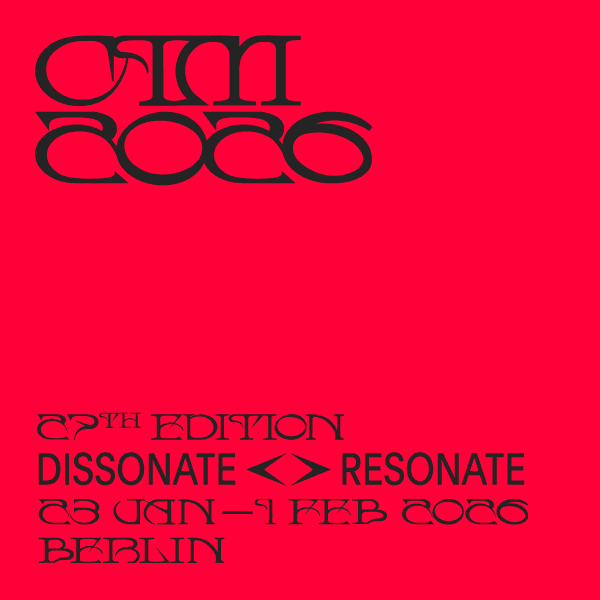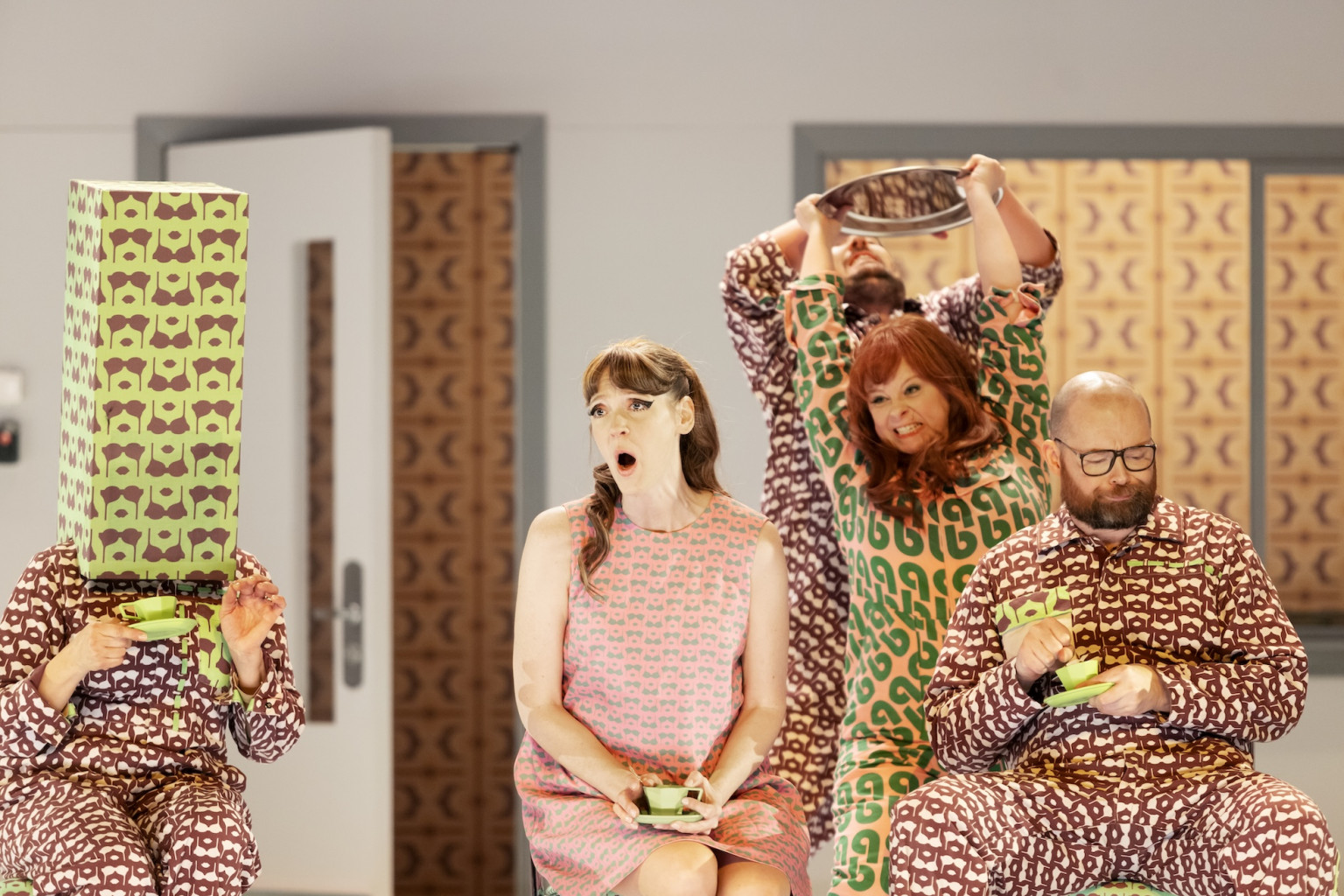
From Factory Floor to Operatic Frustration
Elfriede Jelinek’s pre-feminist take on feminism doesn’t mince words. In the Austrian writer’s potent novella Women as Lovers, her own gender become »solid piles of hate«, »deformed bones« and »a necessary evil«. The text autopsies the sickening hopelessness of life without a penis in 1970s Alpine Europe in a linguistically sparse, brutally indifferent manner. The conversation may have sprawled into complication and obfuscation in the intervening years but Jelinek’s assessment of the problem – that female progress is hindered by a world controlled by men and money – still gets to the nub of things.
The text autopsies the sickening hopelessness of life without a penis in 1970s Alpine Europe
The narrator of Women as Lovers presents readers with two factory workers driven by an urge to find men who might lift them out of the drudgery of life. The »good example«, Birgitte, fights off an educated, bourgeois rival to win the electrician Heinz, enjoying a degree of emancipation via his money but enduring a marriage deficient in affection. The »bad example«, Paula – the more imaginative and poetic of the two – gets pregnant on her first night with the lumberjack Erich but her mistaking of romance for love eventually drives her to prostitution.
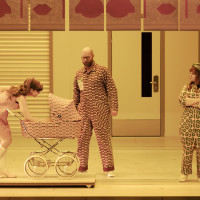
As Jelinek observes with typical cool perspicuity: »daß die liebe nur etwas mit arbeit zu tun hat, das sagt keiner gern’ (love is just hard work and nothing else, but nobody likes to admit it). The absence of love ultimately proves mere detail for Birgitte, who has at least got wise to a system in which she can’t have everything – or much at all. For Paula, the realization that love is not as depicted in the movies proves catastrophic.
Or does it? There’s a streak of optimism at the end of Franciska Éry’s production of a new opera based on Jelinek’s novel, which sees Paula make cautiously off into the non-sunset behind the wheel of a white Peugeot 205 – the »real« version of the toy car belonging to her emotionally stunted husband. Sharing a 50th birthday with Jelinek’s novel this season is Norrlandsoperan, established in 1974 in Umeå as the full-time opera and concert-giving institution for the north of Sweden. It is an institution that has persistently punched above its weight, as witness the commissioning of a new opera for the occasion of its fiftieth jubilee, based on Jelinek’s novel with music by Swedish singer-songwriter Jenny Wilson and a libretto by Erik Norberg.
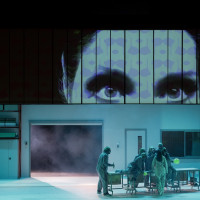
Wonderful dramatic elasticity
Norberg does well to mine a clear-sighted theatrical narrative from a sparse text, though Jelinek’s lucidity surely aided him in the task. Eight singers become the novel’s characters while also forming an ensemble in chorus, collectively moving the story forward and thereby assuming the role of Jelinek herself, though more in the vein of comic-book satirists than the clinical situational pathologist who speaks to us from the pages of the book.
We can speculate as to why such an interesting musician felt disinclined or unable to deliver a score to match the resonance of Jelinek’s novel
Their movement, resourcefulness and dramatic elasticity is wonderful. Per Lindström, who sings Erich, also narrates the scene in which Heinz eyes-up Birgitte’s rival Susi, vocalizing both characters (who mime downstage) – one in falsetto – over the factory’s public address system. The two female leads deliver vivid characterization: Alexandra Büchel is a dreamy, longing Paula and Linnea Andreassen an increasingly mercenary Birgitte.
Rarely does Éry’s production not charm, chill or annunciate the core of both women’s plight and the short-sightedness of the society in which they find themselves. Smartly satirical scenography and costumes by Basia Bińkowska go even further: textiles riff obsessively on the ripe visual motif of the bras produced by the factory in which the women work; when Heinz and Birgitte attempt to consummate their relationship in an orchard, the stage fills with fluffy apples (maybe you had to be there, but it stung).
When the pair finally strategize themselves into full intercourse, we hear what is probably the most interesting music of the evening: a patterned layering of exhalations and wordless notes from the ensemble looking willingly on, underlying a sprechgesang narration.
Opera dares to offer our ears something more nuanced or fantastical than what we see with our eyes. It’s frustrating Wilson didn’t go there
This, the musical highlight? Afraid so. Älskarinnorna may be a nifty piece of theatre but it’s a lousy piece of music. The entirety of Wilson’s 100-minute score, orchestrated by Johan Siberg, is bound by a rigid four-to-the-bar Common Time with marginal variations in tempo, much of it built on repeating two-bar cells. Wilson has made reference to American minimalism in interviews surrounding the unveiling of Älskarinnorna but even at his most dogmatic, Philip Glass – who appears to be a distant influence – understands that a time signature is a framework, not a rhythm in itself. Nearly every word of Norberg’s libretto is squeezed into this grid, a process particularly apparent towards the ends of stanzas when ever-compressing words begin to trip over each other.
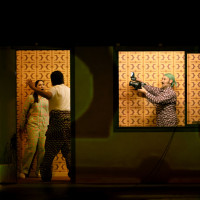
As a device for bringing us the crushing, inescapable banality of the existence Birgitte and Paula dare to believe they can escape from, that might be justified. And perhaps the clunky, syllabic vocal writing echoes the manner in which Jelinek drops her harsh verbal truths – though her text always has an elegance, which is sorely missing in Wilson’s music and never substituted with a sufficiently zippy or effective alternative. Evidently, setting words that aren’t her own proved a challenge.
It is over almost before it started
Besides, opera and theatre demand the exploration of something bigger – a wider context, whether that of vocal artistry or, in the case of Birgitte and Paula, the breadth of existence they imagine for themselves. Opera dares to offer our ears something more nuanced or fantastical than what we see with our eyes. It’s frustrating Wilson didn’t go there – or if she was hell-bent on sticking to her single dimension, didn’t do so with more confident music – given so many of her albums whir with polyphony and are strewn with the sort of beguiling timbral instrumentation the pop music industry traditionally doesn’t have the patience for. Not even Älskarinnorna’s party scene gets the pulse racing.
Evidently, setting words that aren’t her own proved a challenge
There is the sense, at first, that Wilson might bring something more evocative to the orchestral interludes. Some of them launch with ominous two-voice figurations, before you realize that this base layer is, in fact, the content. An interesting snippet of music forms the interlude before the orchard scene, a braiding of syncopated tuned and un-tuned percussion that has a sway, a groove and some sense of a dramatic agenda. But it is over almost before it started. This is reprised not long before some evocative harmonic shifts in the late scene, in which Paula’s prostitution is made public.
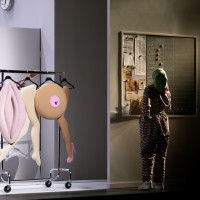
Elsewhere, the harmonic language doesn’t stretch much beyond parallels, which tracks the score’s rhythmic inertia. When the music concedes to theatrical principle and musters itself towards something like a dramatic apex, all we hear is a basic I-V chord progression. Use tonality or move beyond it. Mock it if you want to. Just do something more than this.
Not even Älskarinnorna’s party scene gets the pulse racing
We can speculate as to why such an interesting musician felt disinclined or unable to deliver a score to match the resonance of Jelinek’s novel, the theatrical panache of Éry’s production and the musical abilities of everyone on stage and in the pit. Wilson commented in interviews that she chose not to engage with pre-existing operas before starting work on her piece. It isn’t stuffy, conservative, prejudiced or even patronizing to suggest that it might have helped to do so. The result has been the driving of a vibrant musical voice into a rut, for which the complications of opera alone can’t be blamed.
Norrlandsoperan, Umeå, Sweden, 28 March
